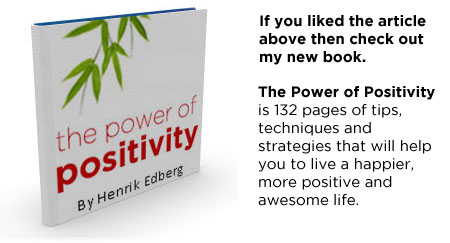Sent to you by Gigi via Google Reader:
Yesterday I had the honor of interviewing who I deem the Godmother of All Mixtresses; Lisa Price of the wildly popular Carol's Daughter brand. Lisa surprised me with her down-to-earth friendly demeanor, and willingness to divulge her recipe's to success. Lisa's honesty was truly refreshing, and her business acumen impressive; so it's no fluke she's landed coveted partnerships with HSN, Disney, and Sephora.
Read this interview and get inspired, empowered, and uplifted! -
MTM: Tell me about how Carol's Daughter started?
LP: Well, it started out as a hobby; initially I was making fragrances for myself, I have always been a fragrance lover and still am to this day. When I first started to do this as a hobby, I decided I was going to make my own fragrances because I didn't want to smell like everyone else on the train [laughs]. I found a place to buy oils, and I started blending fragrance oils, then I found essential oils, and I mixed those in with them. And initially I would put the oils into things that I would buy at the drugstore; bottles of lotion, baby oils etc. I would just shake the bottles up and try to make products with them, because fragrances last when you layer them; when you put the moisturizers on, when you use the shower gels, then you spray the perfume on, that's how it [fragrance] stays with you. I was trying to recreate that layering experience, yet it didn't always work when I was buying these pre-made things; they weren't always that moisturizing, and I always had dry skin so when I started, I started making body products, and adding my fragrances to them so that I could layer them.
My mom suggested that I sell at a flea market that her church was having one Saturday, and that was the beginning of it. I started by selling at flea markets and craft fairs, just earning some extra cash; then eventually my hobby started to turn into a second job. Through going out and doing these flea markets and craft fairs, women started to ask me for hair care products, and at first I didn't have any. Everything I did initially was body and fragrance related. I couldn't even get them to stay at the table; they would ask if I had hair care, I would say no; and they would leave. So then I said; "well at least if I make some hair care, they'll stick around a little bit longer" [laughs], so I started to make hair care in order to get the customer to stay.
MTM: How did you make the transition from mixing scents and products on your kitchen table to having a full fledged operation?
LP: Well, that took a lot of years, it started out with me in my kitchen making things. Then it grew from me making things by myself to having someone help me, then it grew from two somebody's, to three somebody's, to four somebody's; and at one point I think I had 10 people working in my home. Then I got a warehouse in order to produce more effiencetly, and I set up an industrial kitchen in the warehouse to have more space to produce bigger batches and have more people involved.
Eventually we outgrew the warehouse space, and we had to outsource the manufacturing of the product. So we started off with a certain number of products at a time, and over a two year period we were able to outsource everything. At the time we started outsourcing, the only preservatives that company's would use were parabens, so it took us a while to get the manufacturers to agree to alternative preservatives which was kind of like pulling teeth then [now it's a lot easier] because they didn't have enough history with alternative preservative systems. Once we started the outsource process, it was just a matter of time to get the fragrances perfected, and get the recipe's perfected; it took about to years to do that.
MTM: Once you realized you could turn passion into profit, did you have any fears along the way? If so, how did you work to overcome them?
LP: I definitely had fears along the way, and still do to this day; they just change shape, change color, and change form. What I find is, as you overcome each one, it makes you stronger for the next time. Sometimes the challenges, and the fears becomes stronger as well, however in the end it all goes towards making you a stronger person. For me, I feel like my journey in entrepreneurship has been one that's been very, very personal; it involved me becoming a more stronger person, and more confident person then the person that I was before I started doing this. However that's isn't necessarily everyone's story, I think there are some people who go into entreprenuership and are extremely confident, and whatever it is that they are supposed to learn from their business is different. For me it has definitely about building confidence, because most of my obstacles are driven be me; my own fears, my own insecurities, my own doubts, and each time I overcome them I am better equipped to handle the next challenge.
MTM: What were some of the challenges you faced initially?
LP: Learning things! You don't really get a manual per say when you start a business; you make accounting mistakes, you make employee mistakes, you didn't know about the Worker's Comp that you were supposed to pay for, so you get a letter, and have to pay a fines etc. Sometimes I wish there was a kit that arrived in the mail with all the boxes that you have to check because if you don't know, you don't know [laughs].
I remember I had a really funny conversation [well it's funny in retrospect] with a potential wholesaler, and she said; "we would love to carry your line, and I just need to know if you have insurance". I said; "insurance?" and she said: "yeah, do you have insurance?", and I said; "well, I have home owners insurance". I really didn't know what she was talking about, and she finally said; "General Liability Insurance, like for your products, in case someone sues you, you don't have insurance?". I was like 'Oh My God' [laughs], I got off the phone with her and I called my insurance agent to find out more about general liability insurance; and 10,000 later, I had insurance [laughs].
MTM: How involved are you in the Carol's Daughter operation today?
LP: Extremely involved, I am more involved in a creative sense, and in a product development sense; I am also in the office everyday except for when I'm traveling. When it comes to marketing the product, my team always comes to me for the story behind the product; they want to know why I picked particular ingredients, why I pick certain fragrances etc. I'm not necessarily involved with operations on a day-to-day level because that's not my area of expertise, so I can't tell you what happens when an order goes into the system; however I can tell you the ingredients in our products, why they're in there, and what we're going to be selling next spring.
MTM: What is the Carol's Daughter Philosophy?
LP: We have few philosophies. However what first comes to mind is providing products to people that just make their lives better. A lot of times people think that someone in my business lives at the spa, yet I never get to go to a spa. The closest I get to a spa is our Hand & Foot Spa in Harlem to get manicures and pedicures, however going to get a salt scrub, or a hot stone massage; I never have time for that kind of stuff.
Whatever I can do in my own bathroom to have a spa experience, is so important to me. My shower is my spa experience, and I am sure there are tons of women just like me whether it's because of time and or finances that just don't have time to pamper themselves. Sometimes that 5-10 minutes that it takes to apply a salt scrub/sugar scrub, deep condition your hair, or apply a 3-step process on your face, represents that 'me time'. I thinking having 'me time' makes you more sane when you go out into the world, you are better able to function. To me that's something that's hugely important, because if you don't take proper care of yourself, you can't take care of anyone else.
MTM: Your story is very inspiring to a lot of us out there who wish to create our own destiny, what advice do you have for those future entrepreneurs out there?
LP: Finding that very delicate, and sometimes precarious balance between knowing what your vision is, and at the same time being open to change and direction from other places. Sometimes as entrepreneurs we can get very stuck in how we feel, and were not necesarily relevant with the rest of the world. For example; I'm 48 years old, I could care less if I tweet, but I know that tweeting is something that is important so I tweet, not as much as I should, but I'm getting better. You have to be open to the way that the world is changing, and what's going on so that you can remain relevant. You can have who you are at your core, but you always have to remain relevant within the world or eventually your brand will die.
MTM: For those of us that are new to the Carol's Daughter brand, what are some of the must-have products to get acquainted with the line?
LP: Our haircare is most popular; and most loved in haircare I would say is the Black Vanilla Shampoo & Smoothie, and the Hair Milk Lotion [this is the number one sku and has been for the past two years]. On the body side, I would say the Body Jelly is extremely popular; it's a non-petroleum, petroleum jelly. There's no petroleum or mineral oil in it, but it serves the purpose that a petroleum jelly would serve without the bad stuff!
We also have a Peppermint Foot Lotion that's very popular, and a bath salt called Body Ache's Bath Salt that's also very popular.
MTM: Do you have any advice out there for women who are natural or transitioning?
LP: Yes, we sell two products that together form this recipe we call the oil infusion. Right now if they went to the website they wouldn't find oil infusion, but we're working to change that. The oil infusion is Khoret Amen Hair Oil and Khoret Amen Smoothie, you apply them to the hair as a pre-shampoo/pre-conditioning treatment, and it really helps to improve the elasticity and moisture level of the hair. By doing this oil infusion process, your own hair grows in a bit softer while you're transitioning. It isn't going to relax it or take the kink out, it's just a deep conditioner that hydrates the hair, makes it easier to detangle, and easier to manage.
MTM: Carol's Daughter has a new product solution on the market [The Hair Milk Curl Collection]; Tell us a little more about it!
LP: The Hair Milk line is one of the biggest launches we've ever done, and definitely one of our most successful launches to date. The Hair Milk Lotion was one of the products I made for myself to define my curls, as I have always worn my hair curly but didn't necessarily have a product that helped me achieve a great look everyday. Hair Milk has been in our top 5 products for over 15 years, and we knew we could build a franchise out of it. Since the original Hair Milk Lotion was tailored to curls, we really wanted to explore the whole curl market. This also gave us an opportunity to get the product to more people because when you think of curly hair, it doesn't just pertain to African American hair, it can be anyone who has curly hair.
When we were working with the chemist to create the line, we wanted it to be sulfate free, we wanted it to detangle, we wanted for the conditioner to really boost the curls, as well as hydrate and detangle the hair. I got to test it for about 6 months before it hit the market and I loved it; even though I have always worn my hair curly, and people know me in the market for my curly hair, my hair is even easier to maintain having the system vs just having the lotion. My curls just keep longer, it's easier to revive them, and when I fall asleep and wake up in the morning my hair isn't as destroyed as it used to be. I also like co-washing with the Hair Milk Conditioner because I don't like to wash my hair a lot, and the conditioner makes a nice co-wash.
MTM: The Carol's Daughter brand is already associated with major companies like Disney, HSN, and Sephora respectively, where do you see your brand 10 years from now?
LP: Oh boy! It's always hard for me to say that because whenever I say where I think it's going to be, the brand surprises me, and surpasses that. What I always like to say is; "where I see it in the future is still relevant" which I think is really, really important. I think we have done a really good job at continuing to evolve and grow, so I see us being around, still relevant, and with more legs.
This year we got to launch a sub-brand with Mary J Blige and the My Life fragrance, so My Life is it's own brand within the Carol's Daughter umbrella. It has it's own shows on HSN, it broke all kinds of records, [it launched on July 31rst on HSN], it's the first time that a fragrance was launched on television, and a celebrity fragrance at that. She [Mary J Blige] sold close to 52k units in one day, so it was a tremendous success. It was great as small as we are, to be able to launch a brand under our umbrella.
In November on HSN we'll be launching a line called Lisa's Kitchen which will be at home kits where you can make your own products. So I see us having more legs, where we aren't known just for one thing.
Things you can do from here:
- Subscribe to Moptop Maven - Deliciously Opinionated Musings using Google Reader
- Get started using Google Reader to easily keep up with all your favorite sites
















